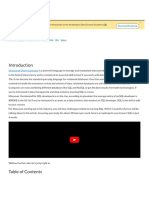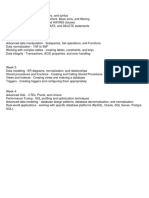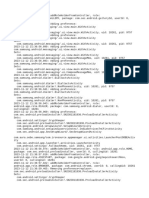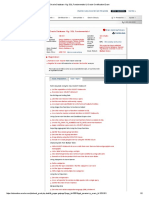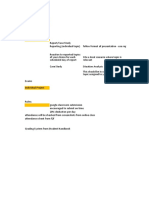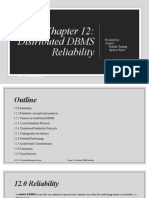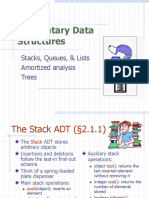0% found this document useful (0 votes)
191 views3 pagesSQL in 30 Days
The document outlines a 30-day plan to learn SQL fundamentals and advanced concepts. Week 1 covers basic SQL syntax, filtering and sorting data. Week 2 focuses on data types, complex queries and string/date functions. Week 3 introduces database design principles like normalization and indexes. Week 4 covers performance tuning, data warehousing, reporting and industry-specific practices. Daily lessons include tutorials, exercises and a final project to apply skills to a business scenario.
Uploaded by
sindhuvijayan15Copyright
© © All Rights Reserved
We take content rights seriously. If you suspect this is your content, claim it here.
Available Formats
Download as PDF, TXT or read online on Scribd
0% found this document useful (0 votes)
191 views3 pagesSQL in 30 Days
The document outlines a 30-day plan to learn SQL fundamentals and advanced concepts. Week 1 covers basic SQL syntax, filtering and sorting data. Week 2 focuses on data types, complex queries and string/date functions. Week 3 introduces database design principles like normalization and indexes. Week 4 covers performance tuning, data warehousing, reporting and industry-specific practices. Daily lessons include tutorials, exercises and a final project to apply skills to a business scenario.
Uploaded by
sindhuvijayan15Copyright
© © All Rights Reserved
We take content rights seriously. If you suspect this is your content, claim it here.
Available Formats
Download as PDF, TXT or read online on Scribd
/ 3











